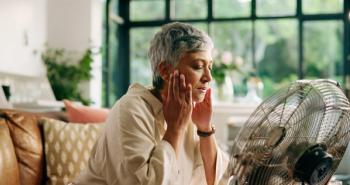
How to Support Caregivers of Children with AD
A 2022 RAD Conference poster presentation explored how to better support caregivers of children with atopic dermatitis.
Caring for a child with atopic dermatitis (AD) can be stressful, time-consuming, and taxing on family finances and social networks, according to a poster presentation from the 2022 virtual Revolutionizing Atopic Dermatitis Conference. The study authors state that previous studies of burden among parents of children with AD and other research have shown high levels of exhaustion, worry, isolation, and helplessness by creating the Supporting Eczema Caregivers Initiative. The study aimed to promote improvements in stress, resilient coping, and loneliness among AD caregivers. The secondary aim was to measure program satisfaction.
Study methods included an email-only group (n=40), a one-to-one mentorship pairing (n=17), and a small group led by a mentor (capped at 5 participants per group; n=4). All 3 groups included 6-week email support. The survey collected data on stress, coping resilience, loneliness, AD severity, and program satisfaction at baseline, 6 weeks, and 12 weeks. Decision impacts on each item were summarized and the age-adjusted impact of AD severity on the items was analyzed using linear regression analyses. AD severity category (measured using Patient-Oriented Eczema Measure; POEM) was parameterized, contrasting each severity level with the next most severe level.
In total, 61 participants completed the program. Almost all parents who signed up for the program had children with moderate-to-severe AD and were experiencing high levels of stress (M=7.8/10). There was no significant change between groups or between the periods from baseline to the 6-weel mark, except in AD severity, which decreased.
AD severity continued to improve from the 6-week point to the 12-week follow-up. When adjusting for the number of emails opened, positive associations emerged between the number of emails opened and POEM, and emails opened and stress. Qualitative data demonstrated high program satisfaction.
Satisfaction with the program was high with participants in both arms rating the program 4.62/5. Qualitative data from open-ended survey questions yielded clear indications of improvement in the general caregiving experience.
Overall, the study authors concluded that“While there was no change in loneliness, resilience, or stress, we found a reduction in self-reported eczema symptoms in both intervention groups (email only / or email + mentorship). This suggests that assisting caregivers with education and maintaining focus on management may help with improving symptoms/control, particularly in children with moderate to severe AD.”
The study results also highlighted the needs of caregivers for support related to the stressors and challenges of AD management, and for options beyond the clinical visit that can be referred to easily, accessed by parents, and referenced by clinical providers.
Reference
- Tu M, Amano L, Kidder B, et al. Facilitating mentorship for caregivers of children with atopic dermatitis. The supporting eczema caregivers initiative. Poster presented at: RAD 2022 Conference; December 11, 2022.
https://djbpnesxepydt.cloudfront.net/radv/December2022/Dec2022Posters/318_Facilitating-Mentorship-for-Caregivers-of-Children-with-AD_Tu-et-al_Poster.pptx_1670622844020.pdf
Newsletter
Like what you’re reading? Subscribe to Dermatology Times for weekly updates on therapies, innovations, and real-world practice tips.











